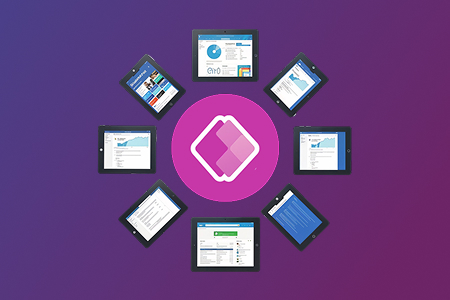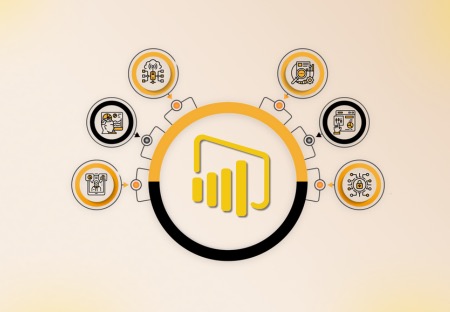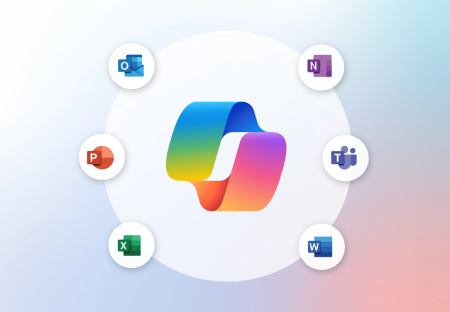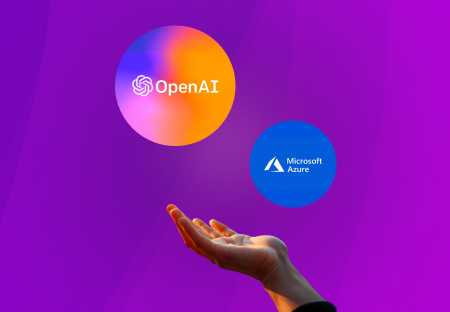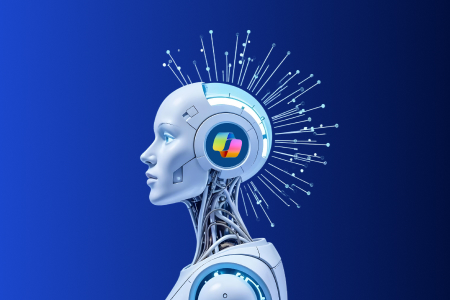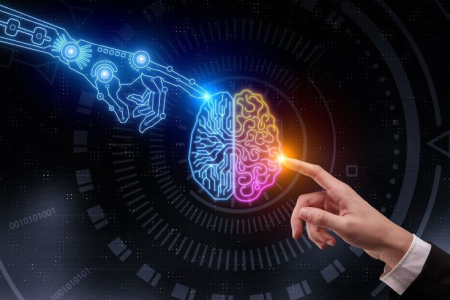In today’s rapidly evolving digital landscape, Artificial Intelligence (AI) is transforming industries, and one of its most significant impacts of ai in data analytics. With the massive amount of data being generated every day, businesses are turning to AI to make sense of this data and gain valuable insights. AI enhances data analytics by automating tasks, identifying patterns, predicting trends, and providing real-time insights that were once impossible to obtain. In this blog, we will explore how AI is revolutionizing data analytics, its key benefits, and how businesses can harness its power to gain a competitive edge.
What is AI-Powered Data Analytics?
AI-powered data analytics refers to the use of artificial intelligence and machine learning algorithms to analyze vast amounts of data, draw conclusions, and make data-driven decisions. Traditional data analytics relied heavily on manual data processing and human intervention. However, AI can now automate many of these processes, offering faster and more accurate insights.
Key components of AI-driven analytics include:
- Machine learning: Algorithms learn from data patterns and improve predictions over time.
- Natural language processing (NLP): AI can interpret human language, making it easier to analyze unstructured data.
- Predictive analytics: AI models can forecast future trends based on historical data.
- Automated data visualization: AI can generate reports and visualizations with minimal input from users.
Benefits of AI in Data Analytics
The integration of AI into data analytics offers numerous advantages, which include:
1. Speed and Efficiency
AI algorithms can process data at speeds unmatched by human analysts. Whether dealing with structured or unstructured data, AI can quickly sift through vast datasets, analyze trends, and deliver insights. This allows businesses to make real-time decisions that can drive growth and improve efficiency.
2. Improved Accuracy
Humans are prone to error, especially when dealing with massive amounts of data. AI in data analytics reduces the likelihood of errors by following precise algorithms to analyze data. With machine learning, AI can also improve its accuracy over time as it encounters more data and identifies patterns.
3. Predictive Insights
AI excels at identifying patterns that might go unnoticed by human analysts. This ability allows businesses to make predictive insights—forecasting customer behavior, market trends, and business outcomes. For example, retailers can use AI to predict future sales based on historical purchasing data and seasonal trends.
4. Enhanced Decision-Making
AI helps businesses make data-driven decisions by providing comprehensive insights. Rather than relying on gut feelings or incomplete data, companies can use AI-powered analytics to make well-informed strategic decisions. This can enhance business performance and ensure long-term success.
Key Applications of AI in Data Analytics
AI is applied across various sectors to transform how data is analyzed and insights are generated. Here are some of the key applications:
1. Customer Behavior Analysis
In retail and e-commerce, AI plays a crucial role in understanding customer behavior. By analyzing past interactions, purchases, and online activities, AI can help businesses create personalized marketing strategies, recommend products, and optimize customer experiences.
2. Fraud Detection
In industries like finance, AI is used for fraud detection. AI algorithms can detect unusual patterns or anomalies in transactions that might indicate fraudulent activities. This real-time monitoring ensures that businesses can respond promptly and prevent major losses.
3. Healthcare Analytics
In healthcare, AI helps in predicting patient outcomes, identifying diseases early, and personalizing treatment plans. By analyzing patient records, genetic data, and historical health data, AI can deliver insights that improve patient care and healthcare management.
4. Financial Market Forecasting
AI-driven analytics are widely used in financial markets to predict stock prices, currency trends, and market volatility. By processing vast amounts of historical financial data, AI can deliver predictions that guide investment strategies and trading decisions.
How AI Enhances Data-Driven Insights
The power of AI in data analytics lies in its ability to analyze vast datasets and turn them into actionable insights. Here’s how AI enhances data-driven insights:
1. Handling Big Data
The sheer volume of data produced daily can overwhelm traditional data analytics tools. AI can handle big data more effectively, analyzing millions of data points in a matter of seconds. This is particularly important for industries like e-commerce, social media, and finance, where real-time data is essential.
2. Uncovering Hidden Patterns
AI can find hidden correlations in datasets that might be overlooked by human analysts. For instance, AI can identify customer purchase patterns, cross-sell opportunities, or emerging trends in customer sentiment by analyzing social media data.
3. Continuous Learning and Improvement
Machine learning enables AI to continuously improve its performance by learning from new data. As more data is fed into AI models, they become better at recognizing patterns, leading to more accurate insights over time.
4. Generating Real-Time Insights
Businesses need insights as events unfold, and AI delivers just that. From tracking customer sentiment on social media to monitoring market fluctuations in real-time, AI provides real-time analytics that empower businesses to act swiftly and make informed decisions.
Challenges of AI in Data Analytics
While AI offers tremendous benefits in data analytics, it’s not without challenges. Understanding these challenges helps businesses better integrate AI into their operations:
1. Data Quality Issues
AI models are only as good as the data they are trained on. Poor-quality or incomplete data can lead to incorrect predictions or faulty insights. Therefore, businesses need to prioritize data quality to ensure AI delivers accurate results.
2. Ethical and Privacy Concerns
AI’s ability to analyze personal data raises concerns about privacy and ethics. Businesses must handle data responsibly, ensuring compliance with privacy regulations like GDPR and safeguarding customer data from misuse.
3. Complexity of Implementation
Implementing AI in data analytics requires technical expertise and substantial investment in infrastructure. For smaller businesses, this can be a significant barrier. However, cloud-based AI solutions are increasingly making these tools more accessible.
The Future of AI in Data Analytics
As AI continues to evolve, its impact on data analytics will only grow. Here are a few trends to watch for in the future:
1. Augmented Analytics
Augmented analytics combines AI and human intelligence to enhance data analysis. By leveraging AI’s computational power and human expertise, augmented analytics can deliver insights faster and with greater accuracy.
2. Autonomous Analytics
Autonomous AI systems are capable of analyzing data without human intervention. These systems can identify trends, create forecasts, and generate reports automatically, significantly reducing the workload on human analysts.
3. Edge AI for Real-Time Analytics
As edge computing becomes more prevalent, AI will enable real-time analytics at the edge. This means data can be analyzed locally (on devices or servers closer to the data source) rather than being sent to a central server, improving the speed and efficiency of data analysis.
Conclusion
The impact of AI on data analytics is profound and far-reaching. By automating complex data processes, improving accuracy, and providing real-time insights, AI is enabling businesses to unlock new levels of efficiency and competitiveness. As AI continues to evolve, its role in data analytics will become even more indispensable, helping businesses make smarter, faster, and more informed decisions.



